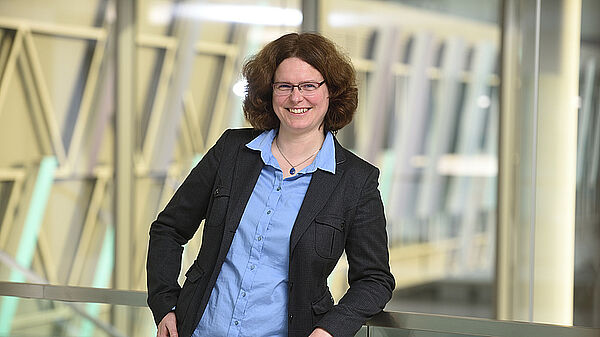Green Data Science expert Jasmin Lampert has been working at the AIT Center for Digital Safety & Security since 2014. Last fall, she made the career leap to Senior Scientist. She studied physics and astronomy at the universities of Bonn and Uppsala and received her doctorate in astronomy in 2008. The topic of her thesis was the development of a semi-analytical model to measure the statistical distribution of dark matter in the universe using the weak gravitational lensing effect.
Currently, Lampert is researching how to use machine learning methods to gain a better understanding on the topic of climate change. The AI4Trees project (https://ai4treesproject.at) is about modeling tree growth depending on changing climatic conditions. "The difficulty is to prepare the various error-laden data so that they can be used for modeling and to verify our predictions against observations," Lampert explains.
What is the most exciting thing about your current research work?
The many new questions and insights that come from working with experts from different fields, such as forestry. I didn't realize before that trees can also contract and grow erratically in cold weather, depending on the weather conditions.
What is currently the biggest hurdle or challenge for you?
As a team leader, I am also responsible for project management and the acquisition of new projects, so the biggest challenge for me is to organize my everyday life in such a way that there is enough time for the actual research.
Do women have a hard time in research in Austria?
Women are often still significantly underrepresented in research and technology in Austria, earning on average 19.5 percent less than men in comparable positions (source: Gleichstellung in Wissenschaft und Forschung, BMBWF, 2018). From there, we should strive as a society to further facilitate women's path into research.
How can the proportion of women in research be increased?
In order to create the framework for a research career, I think it is important that childcare is expanded and that successful female researchers are publicly present as role models. For this reason, I have been involved as a WOMENinICT Ambassador since the beginning of 2023 and present my research topics not only at conferences, but also in kindergarten.
What tips do you have for young women to make a career in research?
First of all, have the confidence to make a career in research and set high goals. Once the decision is made, it is important to network with other researchers to find ideas and opportunities for your own career path. These can be traditional professional networks, but also women's networks, such as the WOMENinICT network. In addition, I think it is very helpful to find a good mentor who can give good career tips and guide your own path.



